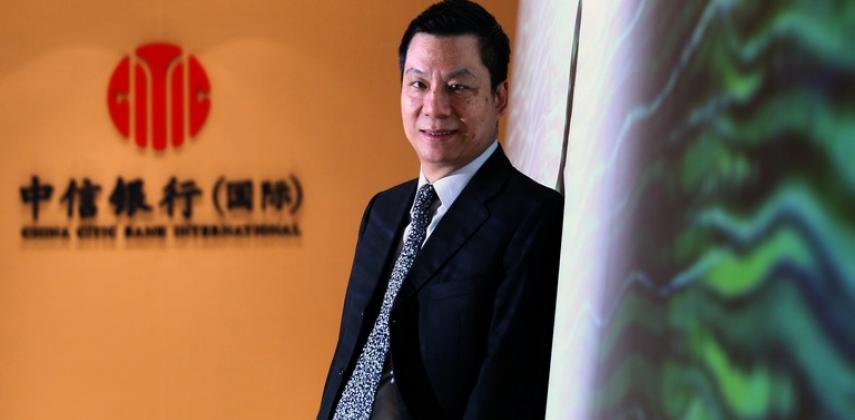Bank is looking for experienced treasury traders with top-notch Mandarin skills and excellent mainland connections to boot
Major changes have taken place in Hong Kong’s treasury market over the past decade, many of which have more to do with what is taking place north of the border than in Hong Kong itself.
Thanks to China’s booming economy, Hong Kong’s treasury market is now more focused on cross-border business than ever before. At the same time, Chinese authorities want to internationalise their currency, thus creating a multitude of business opportunities for banks in Hong Kong.
As a result of these developments, those wanting to work in the treasury market need a different skill set than before. These include language skills and social skills, as well as an ability to adapt to a business culture that is vastly different to that in Hong Kong.
“Because of these changes, we need talent with the interpersonal skills to deal with mainland clients, so language skills and social skills are quite important,” says Woody Chan, treasurer, China CITIC Bank International.
Many job applicants in Hong Kong routinely put “trilingual” on their CVs, but their Mandarin-speaking skills often fall far short of the mark. It is one thing to be able to greet people in Mandarin and order dinner at a Chinese restaurant, but it is quite another to be able to explain complex business concepts to mainlanders.
“In the mainland, you need to be able to speak fluent Mandarin,” Chan says. “If you can’t articulate your ideas fluently, your clients will quickly lose interest in what you have to say. Hong Kong people can speak relatively good Mandarin, but it might not be fluent enough to communicate their ideas effectively.”
“When you go to the mainland, you have to be direct and get to the point in good Mandarin,” Chan says. “For this reason, when we cross the border, we might need to rely on locals rather than people from Hong Kong.”
There is also the issue of willingness to travel and relocate. Many Hong Kong staff are willing to live and work in large cities with shopping malls and stylish restaurants. But would they be willing to live in a medium-sized or small city on the mainland?
“Mobility is very important,” Chan says. “Before, we used to travel a lot to Southeast Asia. Now we are travelling more and more to the mainland, and not just to first-tier cities such as Beijing and Shanghai. We also need to travel to second- and even third-tier cities, where there might be cultural differences that could make Hong Kong people feel inferior.”
Chan points out that special skills are needed to navigate such differences between Hong Kong and the mainland. “Some of the soft skills can be quite different,” he says. “In mainland China, you have to be careful about how you address people, especially CEOs or managing directors.”
It is also important to have a strong mainland Chinese network. “If you look at the Hong Kong treasury market, over the past two to three years, those who have survived are those with Chinese connections,” Chan says.
For those with the right skills, the rewards in Hong Kong’s treasury market can be immense.
“In the past 10 years Hong Kong has developed into a city where it is possible to find Mandarin-speaking colleagues,” Chan says. “If you can speak well and you have a good mainland network, you can do well. Mandarin and English are now equally important. A job applicant who is fluent in Mandarin and with good mainland connections could command a salary that is 10 to 20 per cent higher than someone without those assets.”
Just being fluent in spoken Mandarin, however, is not enough. It is also important for employees to be able to read and write simplified Chinese, as more and more of the bank’s correspondence is being done using this medium.
“We value mainland Chinese with an overseas or Hong Kong education,” Chan says. “We prefer people with this type of background. Unlike their Hong Kong counterparts, who are sometimes reluctant to work on the mainland, they are very willing to be transferred to mainland Chinese cities. If they understand our culture and if they speak good English, they would be preferred by employers in Hong Kong.”
So what are the opportunities for recent graduates?
“There are fewer and fewer opportunities for fresh graduates,” Chan says. “We are an established bank so we want people with experience so that they can get immediate results. I have not recruited trainees for two years now. We currently have 40 people in the currency trading room. The average annual turnover rate is about 30 per cent, so every year we part company with at least 10 colleagues. A few years ago, we had to recruit for expansion. Now it is more to replace colleagues who have left the bank.”
Chan says the career paths that the bank can offer staff in the treasury department really depend on the talent of the individual employee.
“We have colleagues on a very fast track and others who can be in the same job for 10 years,” Chan says. “Whether you can make money or not is very transparent. It really depends on the capability and talent of the individual. For those with talent, the sky is the limit. The question is: can they develop with the market?”
Chan says those with less experience wanting to enter the treasury market need to have the right kind of personality, as those who are tentative and unsure of themselves will flounder.
“They need to be willing to make decisions,” Chan says. “They need to be able think and act quickly. If they make a mistake, they need to be able to deal with the consequences. If you have difficulty making decisions, if you get bored easily, you won’t last long in the treasury market.”


